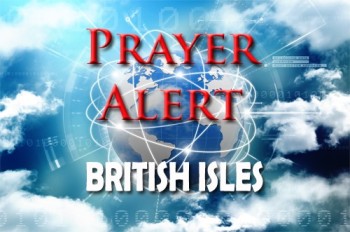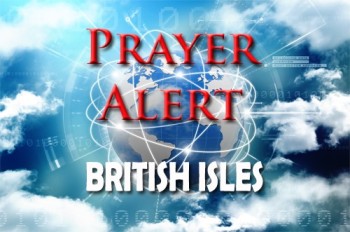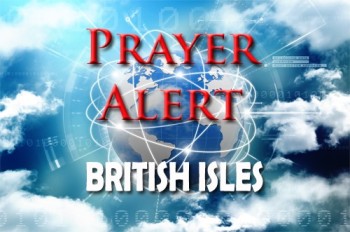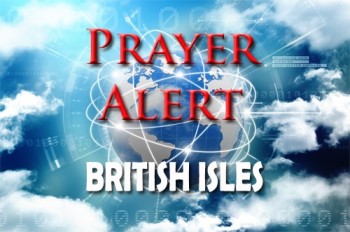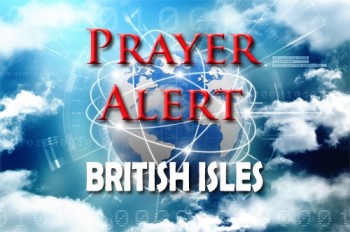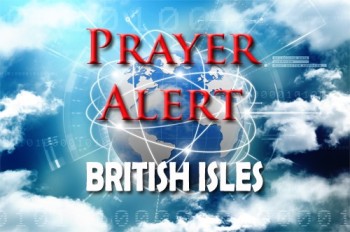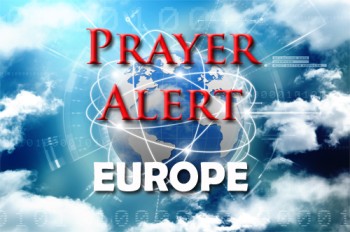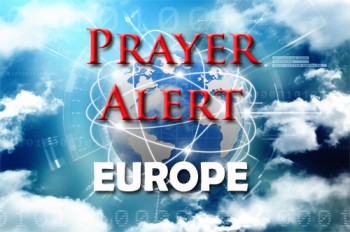Displaying items by tag: Politics
Latest vetting row raises fresh concerns over Starmer's judgement
A fresh political row has raised new questions about Keir Starmer’s judgment following controversy over the appointment of Lord Matthew Doyle to the House of Lords. Former Downing Street communications director Tim Allan has stated he informed the prime minister about Doyle’s past association with Sean Morton, a convicted sex offender, before Doyle was offered a peerage. Allan said Doyle admitted believing Morton’s claims of innocence prior to conviction but did not disclose campaigning on his behalf. Lord Doyle has apologised for an 'error of judgement' but has declined further comment. There has been considerable unrest within Labour, with MPs voicing concern that repeated vetting controversies are damaging public trust. Comparisons have been drawn with the criticism surrounding Lord Mandelson’s appointment, prompting calls within the party for stronger scrutiny of honours and peerages. With parliament entering recess, pressure remains on the prime minister to reassure colleagues and the public that due diligence and safeguarding standards are being handled responsibly at the highest levels of government. See
Are Starmer’s days as PM numbered amid fury over Mandelson?
Labour MPs have warned that Keir Starmer’s leadership is under serious threat following intense backlash over the appointment of Peter Mandelson as ambassador to the USA. Fury erupted after Starmer admitted he was aware of Mandelson’s past friendship with convicted sex offender Jeffrey Epstein before approving the appointment. A Commons debate nearly ended in government defeat, narrowly avoided through a last-minute amendment forcing the future release of documents relating to Mandelson’s vetting and appointment. Several Labour MPs described a collapse of trust, with some openly questioning whether they could support Starmer in a confidence vote. The mood, described as 'dark' and 'terminal’, has unsettled even long-standing loyalists. MPs warned that once withheld documents are released - currently delayed by a Metropolitan Police investigation - a leadership challenge could follow. Though Starmer has pledged transparency and announced plans to strip Mandelson of honours, and ministers insist he acted in good faith, many MPs fear lasting damage to the government’s credibility and moral authority.
Union threatens Labour after Andy Burnham blocked from by-election
Fresh divisions have emerged within the Labour party after the decision to block Andy Burnham from standing in a parliamentary by-election in Greater Manchester. The move, approved by Labour’s National Executive Committee, has triggered a strong backlash from MPs, party activists and trade unions. Unison general secretary Andrea Egan warned Keir Starmer that the party risked damaging itself through excessive central control and intolerance of internal dissent. Writing publicly, she accused the leadership of factionalism and called for a radical change in direction to prevent further electoral losses. More than fifty Labour MPs from across the party have expressed concern, with local activists also demanding the decision be reversed. Critics argue the move undermines democratic accountability and weakens Labour’s position in a once-safe seat now vulnerable to Reform UK and the Greens. Breaking news: Andy Burnham has said he will accept the Labour decision even though it was hard to take. See
Jenrick sacked by Tories, defects to Reform UK
Robert Jenrick’s political journey has taken another dramatic turn after his sacking from the Conservative shadow cabinet and his decision to align himself at once with Nigel Farage’s Reform UK party. Long known for courting controversy, Jenrick has steadily shifted from a centrist, pro-Cameron Remainer into a leading figure on the hard right of British politics. As a minister, he was embroiled in major rows over a planning decision involving a Tory donor and over actions taken during Covid lockdowns. More recently, he built his leadership campaign almost entirely around a tough stance on immigration, including leaving the European Convention on Human Rights. His rhetoric and admiration for Donald Trump have alarmed former allies and delighted critics on the right. Once seen as a rising moderate star, Jenrick now appears determined to reshape his future beyond the Conservative mainstream, signalling further turbulence in an already fractured political landscape.
I have never authorised attacks on ministers, says PM
Keir Starmer has firmly denied authorising anonymous briefings against members of his cabinet after reports suggested some aides believed he could face a leadership challenge from health secretary Wes Streeting. At PMQs, he called such attacks completely unacceptable, insisting he appointed his ministers because they are 'the best people to carry out their jobs’. Streeting, who missed PMQs to address an NHS conference, rejected claims he was plotting a leadership bid and criticised what he described as a 'toxic culture' inside No 10 - though he does not believe the prime minister is responsible. Kemi Badenoch accused Starmer of having 'lost control of his government’, while speculation persists within Labour about who might stand if a contest were triggered. Despite a large 2024 majority, Starmer’s leadership has faced turbulence; with the Budget and devolved elections looming, internal unity is being tested.
Senegal: power struggle between president and prime minister
A political showdown has erupted in Senegal between president Bassirou Diomaye Faye and prime minister Ousmane Sonko, threatening to fracture the alliance that brought them to power. The dispute began when Faye dismissed Aïssatou Mbodj, a close Sonko ally, from her leadership role in the ‘Diomaye Président’ coalition, replacing her with his own confidante, Aminata Touré. Sonko’s Pastef party swiftly condemned the move as illegal, asserting that the president lacked authority to make such a decision and accusing him of betraying the coalition’s founding principles. The standoff exposes deep divisions over control and ideology at the heart of Senegal’s leadership, raising doubts about whether Faye can govern effectively without his powerful and popular prime minister. With rival factions now entrenched and public confidence wavering, the confrontation risks paralysing government operations and destabilising one of West Africa’s historically steady democracies.
Farage overtakes Starmer in poll on who would make better PM
A new poll has placed Reform UK leader Nigel Farage ahead of Keir Starmer as the public’s preferred choice for prime minister - the first time he has led in such polling. The survey, conducted from 10 to 13 October among 1,141 people, found 33% favoured Farage and 30% Starmer, while 29% were undecided. Ipsos’s Keiran Pedley said the result marks 'an intriguing shift' in the political landscape, with growing public confidence in Reform’s economic and immigration policies - issues Britons see as most important. Separate YouGov research also shows Labour’s support slipping to a record low of 17%, tied with the Conservatives, while Reform leads with 27%. The Greens have 16% and the Liberal Democrats 15%. Farage’s growing appeal, fuelled by dissatisfaction with both major parties, signals rising volatility in UK politics. Pressure is mounting pressure on Labour ahead of the autumn budget and next year’s local and national elections.
France: new PM to be named within 48 hours?
Emmanuel Macron is expected to appoint a new prime minister within 48 hours, following the abrupt resignation of Sébastien Lecornu’s government just 14 hours after being named. Lecornu, asked to outline a path forward, concluded that most lawmakers oppose snap elections and that a narrow parliamentary plurality could support a 2026 budget aimed at reducing France’s deficit, projected at 5.4 percent of GDP. Macron now faces the challenge of naming a leader capable of governing without a parliamentary majority - the same obstacle that brought down Lecornu’s predecessors. Choosing a centre-left prime minister from the Socialist Party could help build a coalition but would probably reignite controversy over Macron’s contested pension reform, which raised the retirement age. With political divisions deepening, Macron has yet to comment publicly, while far-right leader Marine Le Pen and her party have said they would vote to topple any new prime minister named before new elections, intensifying France’s ongoing political instability. For an assessment of Macron’s options, see
Czech Republic: former PM poised for comeback, faces difficult balancing act
Billionaire and former prime minister Andrej Babis is poised for a political comeback as his ANO party leads polls ahead of the October 3-4 elections. Having shifted from a liberal to a national-conservative position, Babis is promising voters financial relief and protection from external pressures such as immigration and climate policies. Yet his return to power would be fraught with complications. ANO is expected to fall short of a majority, forcing him to seek support from far-right or far-left allies who advocate leaving the EU and NATO – a stance at odds with his own pledge to remain. He also faces personal challenges, including a renewed fraud trial and a significant conflict of interest over his vast business empire, Agrofert, which receives significant EU subsidies. His alliances with figures like Hungary’s Viktor Orbán underscore his anti-Brussels stance, but navigating extremist demands while maintaining pro-Western ties may prove his toughest balancing act yet.
The Gospel was preached at Charlie Kirk’s memorial
The memorial service for Charlie Kirk at Arizona’s State Farm Stadium blended elements of political rally and charismatic evangelical worship, yet its defining feature was the bold proclamation of the Gospel. Speaker after speaker - from Ben Carson and Marco Rubio to JD Vance and even Donald Trump Jr - clearly articulated salvation through Christ. The most powerful moment came when Erika Kirk forgave her husband’s assassin, declaring that the forgiveness she has received through Jesus must also be extended to the one who made her children fatherless. Her testimony of grace was a profound witness before millions watching worldwide. Even Donald Trump appeared touched, seemingly showing an awareness of the cost of true faith and forgiveness. The service became a reminder that the Gospel is for all - even those we may struggle to accept. The legacy of Charlie Kirk now points beyond politics to the transforming power of Christ, challenging Christians everywhere to live and proclaim forgiveness and grace.
